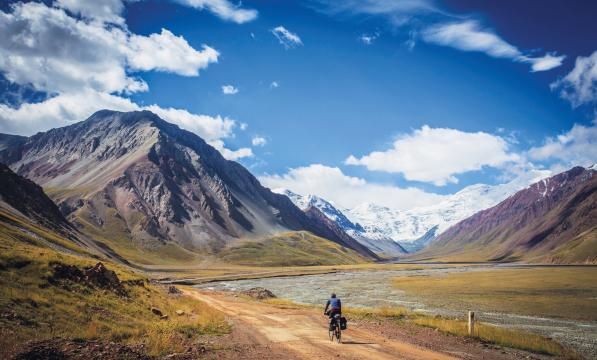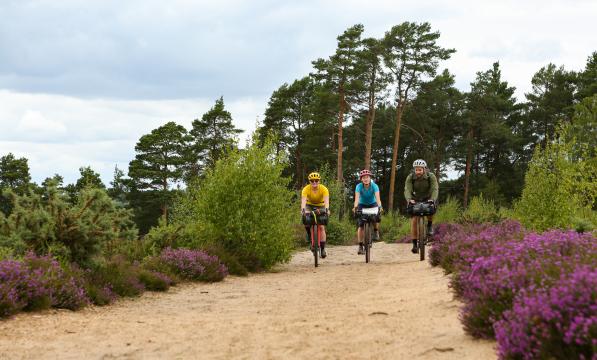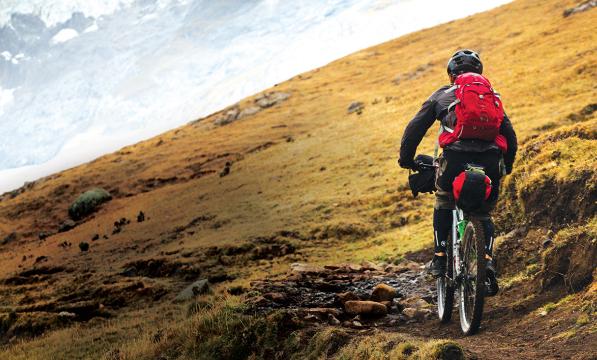Cycle touring and bikepacking - what's the difference?
Bikepacking has sky-rocketed in popularity in recent years, as we saw with the launch of Cycling UK’s King Alfred’s Way route, but what exactly is it, and how is it different from cycle touring?
What is bikepacking?
The simplest way to look at it is like backpacking, but on a bike. Carrying all the kit you’ll need with you for your trip, whether that’s camping gear for sleeping out under the stars, stoves and food for cooking up your own meals or simply a change of clothes for overnighting in a hostel or guesthouse.
Sounds familiar doesn’t it - just like touring… so how are they different? There are two subtle differences.
Typically, bikepacking refers to off road routes, rather than sticking to tarmac like some traditional touring routes. Our bikepacking routes, including the West Kernow Way, Cantii Way and Rebellion Way blend off road tracks, trails and unpaved roads with linking lanes and cycleways to help riders get a little more remote than the asphalt would normally allow.
Secondly, bikepacking setups tend to use lightweight bags that strap directly onto the bike frame, minimising weight compared to a traditional rack and pannier set up, which is usually at the cost of a little less packing room.
There’s a whole range of approaches when it comes to bikepacking, from those racing ultra distances on light setups as fast as possible to riders soaking in the surrounding landscape and culture as they ride, camp and document their travels at a more relaxed pace.
Which bike is best for your trip?
Given that bikepacking routes are predominantly off-road and touring routes tend to be tarmac based, it’s easy to see how the range of suitable bikes for each differs.
Touring bikes are usually kitted out with wider tyres than road bikes to help cope with the added weight of luggage. Bikes suitable for bikepacking will need wider tyres still, to cope not only with the added weight but also with the rougher terrain.
What kind of bike you’ll need for your bikepacking trip depends on the kind of tracks involved on your chosen route as well as personal preference.
Many people enjoy bikepacking on gravel bikes drop bars, especially on less technical off-road routes such as the Cantii Way in Kent or the Rebellion Way in Norfolk.
For more technical routes, or riding in areas with longer, steeper inclines such as in mountainous regions, a mountain bike might be a better choice.
The wider range of gears will no doubt be handy, though with fewer hand positions on offer with flat bars, many riders opt to add bar ends for extra comfort.
Though racks and panniers are the traditional choice for bike touring, you can also opt to use bikepacking bags for a road tour. This means that you can use any bike that doesn’t have pannier rack mounts as a touring bike, which is pretty neat.
Though some off-road bikes feature pannier rack mounts, standard panniers are generally less suited to off-road use as they can easily work loose due to the bumpier terrain.











